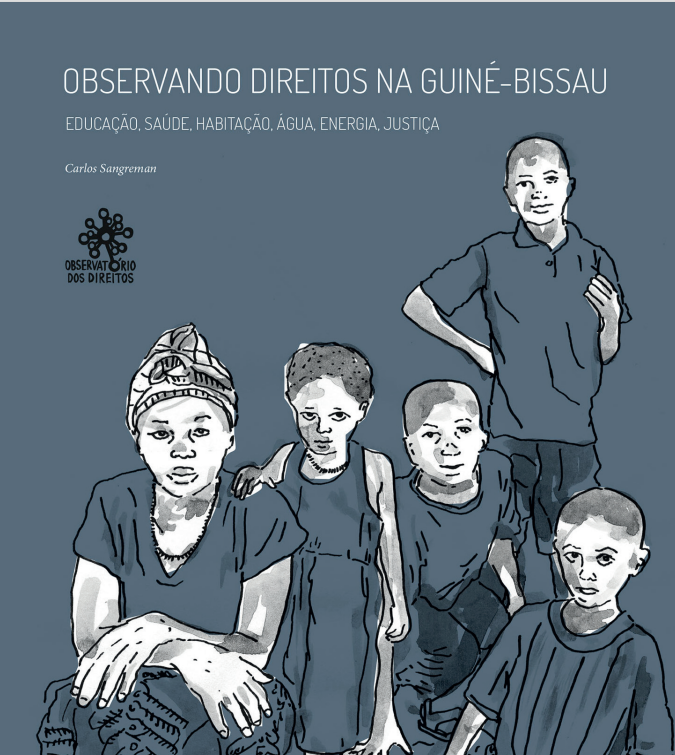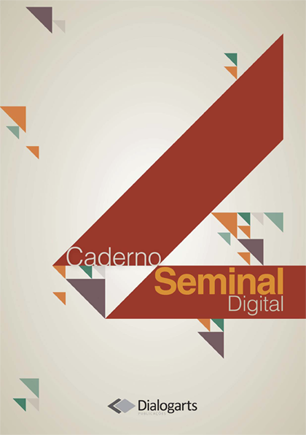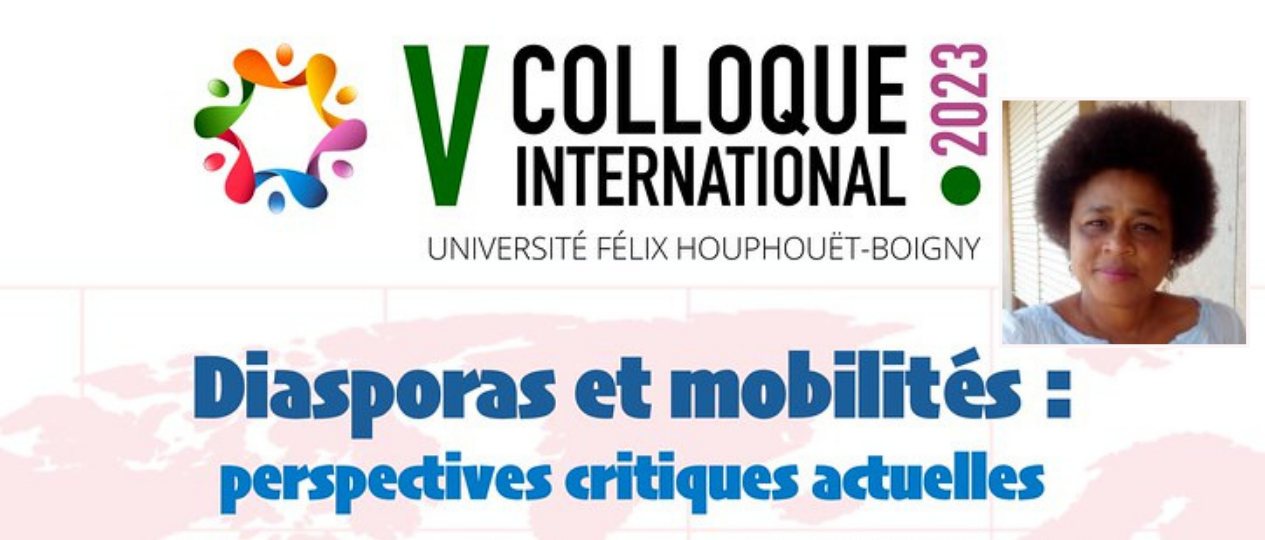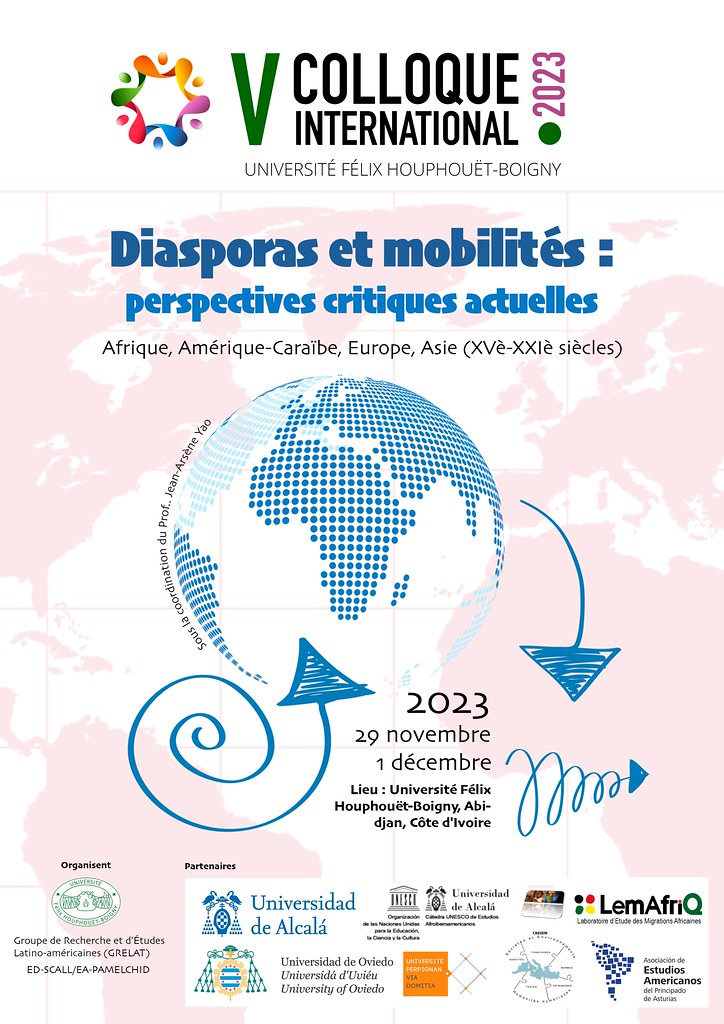CESA

Observando Direitos na Guiné-Bissau: Educação, saúde, habitação, água, energia, justiça
Quotation:
Sangreman, C. (2015). Observando Direitos na Guiné-Bissau – educação, saúde, habitação, água, energia, justiça. Lisboa: ACEP, com LGDH e CEsA. ISBN 978-989-8625-07-6.

Elementos Históricos e Ficcionalidade em Saga d’Ouro
Abstract:
This essay proposes an analysis of Saga d’Ouro (2019) by the Mozambican author Aurelio Furdela. In this Novel, our author skillfully blends historic information with literary art. The narrative takes place in Mwenemutapa, which covers Zimbabwe and a part of the land that is now Mozambique. Through the different stories of the characters, the author portrays the lives of different groups from various perspectives, including political, economic and cultural. Following H.R. Jauss and the Reception theory, the aim of our analysis is to understand the possible intention and critical relationship between past and present, to consider the current state of Mozambican society and its development model to understand the importance of the historical novel in preserving the memory of the past, avoiding the repetition of mistakes in the present.
Quotation:
Zhu, Anqi & Leite, A. M. (2023). “Elementos Históricos e Ficcionalidade em Saga D’Ouro”, In: A narrativa moçambicana no século XXI. Caderno Seminal Digital (n.º 45). Dialogarts. DOI DOI: http://dx.doi.org/10.12957/seminal.2023.79827

Memória e Identidade em Tornado, de Teresa Noronha
Abstract:
This essay proposes a brief study of Tornado (2021), by Teresa Noronha, focusing on the exploration of individual, collective, and post-colonial identities. The methodological framework will rely on a Memory Studies approach, contemplating concepts such as “trauma”, “collective memory”, “feminine countermemory”, and “memory wars”. We aim to recontextualize these conceptual tools beyond Holocaust studies, demonstrating their pertinence for the research put forth here. As such, we present a critical, feminist, and feminine reading of Noronha’s novel focused on its main character.
Quotation:
Aires e Castro, A. & Leite, A. M. (2023). “Memória e Identidade em Tornado, de Teresa Noronha”, In: A narrativa moçambicana no século XXI. Caderno Seminal Digital (n.º 45). Dialogarts. DOI http://dx.doi.org/10.12957/seminal.2023.79823

Crimes e Violência no Índico Moçambicano Rabhia de Lucílio Manjate e a Ilha dos Mulatos de Sérgio Raimundo
Abstract:
This article focuses on two contemporary Mozambican novels: Rabhia by Lucílio Manjate, published in 2017 and A Ilha dos Mulatos by Sérgio Raimundo, published in 2020. Although with different structures and narrative options, as will be seen throughout the article, both the novels look at contemporary Mozambican society through the prism of crime and mystery, providing a multifaceted portrait of post-coloniality in this African country. As will be seen, in these narratives, postcoloniality emerges marked by conflicting memories and complex gender, racial and inter-generational relations, as the result of the multiple situations of violence experienced by the country during historical, political and economic transitions. On the other hand, in both narratives, the representation of the millenary historical and identity relationship between Mozambique and the universe of the Indian Ocean will be analysed, approaching the topics of migration, racial and cultural miscegenation, as well as the diffusion of Islam as a transnational religious and cultural element.
Quotation:
Falconi, J. (2023). “Crimes e Violência no Índico Moçambicano Rabhia de Lucílio Manjate e a Ilha dos Mulatos de Sérgio Raimundo”, In: A narrativa moçambicana no século XXI. Caderno Seminal Digital (n.º 45). Dialogarts. DOI http://dx.doi.org/10.12957/seminal.2023.79831

A Categoria de Poético e a Meditação sobre a Escrita em Marizza de Mélio Tinga
Abstract:
This essay presents a brief study on the novel Marizza (2021), by Mélio Tinga, based on the study and conception of the poetic record that the narrative organizes, as well as on its metanarrative organization, of meditation on writing. The recomposition of the myth of Orpheus in the novel, as well as a set of fragmentary intertexts that compose it, allows the reader to understand the reflective, and somewhat philosophical, dimension that the author and narrator make about beauty, love, passion and about literary life as an institution (writing, edition, proofreading, reception and circulation of the book).
Quotation:
Jeremias, R. M. & Leite, A. M. (2023). “A Categoria de Poético e a Meditação sobre a Escrita em Marizza de Mélio Tinga”, In: A narrativa moçambicana no século XXI. Caderno Seminal Digital (n.º 45). Dialogarts. DOI http://dx.doi.org/10.12957/seminal.2023.79832

Cultura, Cristianismo e Modernidade no Romance Mueda nos Labirintos dos Ritos de Iniciação de Carlos Paradona Rufino Roque
Abstract:
The theme “Culture, Christianity and Modernity in the novel ‘Mueda: nos labirintos dos ritos de iniciação’ by Carlos Paradona Rufino Roque” focuses on the initiation rites of Mozambican culture in the encounter with Christianity and Modernity. Stage of the novel, Mueda is a village in the Cabo Delgado province and the cultural capital of the Makonde people. The aim of the work is to compare the constitutive elements of the initiation rites with the classic myth. Tempering history and fiction, the novel reveals the mysteries of the initiatory liturgy and the syncretic environment of the inhabitants of Mueda, the target of the author’s criticism. The search for the most beautiful young woman through the initiation rites, attracts young people to Mueda. The aim is to conquer the most beautiful woman, which inscribes the novel on the same level as the classical myths such as Paris and Helen or Hippomenes and Atalanta.
Quotation:
Nachivango, P. V. N. & Leite, A. M. (2023). “Cultura, Cristianismo e Modernidade no Romance Mueda nos Labirintos dos Ritos de Iniciação de Carlos Paradona Rufino Roque”, In: A narrativa moçambicana no século XXI. Caderno Seminal Digital (n.º 45). Dialogarts. DOI http://dx.doi.org/10.12957/seminal.2023.79834

O Recente Cenário Literário de Maputo: Notas de Campo
Abstract:
Using the ethnographic tool of the “Field Diary”, resulting from participant observation and photographic recordings carried out in Maputo, between September and October 2022, the main objective of the text is to articulate the current literary scenario of the city with its geography, analyzing permanencies and transformations that are established in the constant dispute between memory and oblivion.
Quotation:
Gallo, F. (2023). “O Recente Cenário Literário de Maputo: Notas de Campo”, In: A narrativa moçambicana no século XXI. Caderno Seminal Digital (n.º 45). Dialogarts. DOI http://dx.doi.org/10.12957/seminal.2023.79835

Modelos de Construção do Romance Africano em Nyembête ou As Cores da Lágrima
Abstract:
This study is based on Calane da Silva’s proposal, as an essayist, on the writing of the new African novel for the 21th century, which in my view still needs debate, but which can already be analyzed from the author’s own proposal, in his novel Nyembête ou as cores da lágrima. I demonstrate, with this research, the characteristics that allow us to accept the work as a formation novel, a designation that I borrow from Puga (2016). I argue that it is a narrative with neo-romantic elements, namely polyphony and death with the possibility of return, factually found in the Traditional Bantu Culture and in the Apostolic Catholic Tradition, and I also consider its perspective of a self-fictional novel (Faedrich, 2015), bearer of biographical marks of its author. In developing this research, I do so in the knowledge that it is a different conception of writing than what is usual to find in Calane da Silva – prose writer and short story writer (because he was also a poet). Added to this, in this article I observe that the author takes an approach to spirituality, centered on his studies on Spiritual Anthropology.
Quotation:
Laisse, S. J. (2023). “Modelos de Construção do Romance Africano em Nyembête ou as Cores da Lágrima”, In: A narrativa moçambicana no século XXI. Caderno Seminal Digital (n.º 45). Dialogarts. DOI http://dx.doi.org/10.12957/seminal.2023.79833

Subversão do Romance Policial e Questões de Memória em A Ilha dos Mulatos
Abstract:
This article presents a study about A Ilha dos Mulatos (2020), by Sérgio Raimundo, based on the structure of the detective novel, which is subverted and expanded to the level of narration, creating a game of masks in order to uncover the narrative voices. It deals with the theories of memory and the way memory is treated in the novel, unfolding in the notion of post-memory. Articulating memory as one of the necessary elements for the discovery of the guilty in the framework of the crime novel, we verify that it also turns out to be subverted in the writing of this novel.
Quotation:
Jeremias, R. & Leite, A. M. (2023). “Subversão do Romance Policial e Questões de Memória em A Ilha dos Mulatos”, In: A narrativa moçambicana no século XXI. Caderno Seminal Digital (n.º 45). Dialogarts. DOI http://dx.doi.org/10.12957/seminal.2023.79829

CEsA researcher Iolanda Évora is part of the Scientific Council of the 5th International Conference 2023 on diasporas and mobilities, taking place in Ivory Coast in November 2023

CEsA researcher and Professor at ISEG – Lisbon School of Economics and Management Iolanda Évora (CEsA/CSG/ISEG/ULisboa) participates as a member of the Scientific Council of the V Colloque International 2023 – Diasporas et Mobilités: Perspectives critiques actuelles. Afrique, Amérique-Caraïbe, Europe, Asia (XVè-XXIè siècles). The international conference will take place between November 29th and December 1st, 2023 at the Université Félix Houphouët-Boigny, in Abidjan, Ivory Coast. The event aims to explore the dynamics of human mobility on the one hand through the experience of Africans and people of African descent and, on the other hand, it aims to cross the themes of borders, circulations, human-environment interactions, memories, competence to act and interculturalities or creolizations not only on the African continent but also more widely in the Americas-Caribbean, without excluding Europe and Asia.
The event is organized by the Research and Latin American Studies Group (ED-SCALL/EA-PAMELCHID) at the Félix Houphouët-Boigny University (Ivory Coast), in collaboration with the Unesco Chair of Afro-Iberoamerican Studies at the University of Alcalá (Spain), the Research and Studies Group on Black People in Latin America (GRENAL-Eixo Línguas e Identidades/CRESEM) of the University of Perpignan (France), the Asociación de Estudios Americanos del Principado de Asturias, the University of Oviedo (Spain) and the Laboratory for the Study of African Migrations (LemAfriQ) based in Madrid (Spain).
More information on the Conference website: https://grelat-ufhb.org/v-colloque-international-2023/
Get to know our researcher:
 Iolanda Évora holds a PhD in Social Psychology from the University of São Paulo (USP), researcher at CEsA/CSG/ISEG/ULisboa and Professor of the Master in International Development and Cooperation (DCI) at ISEG/ULisboa. She is coordinator of the AFRO-PORT Project, Afrodescendência em Portugal: sociabilidades, representações e dinâmicas sociopolíticas e culturais. Um estudo na Área Metropolitana de Lisboa (FCT). Editor of the “Diáspora cabo-verdiana. Temas em debate” (e-book) and co-editor of the “As Ciências Sociais em Cabo Verde. Temáticas, abordagens e perspectivas teóricas” (Praia, UNI-CV, Cabo Verde), “Trabalho, sociabilidade e geração de rendimento no espaço lusófono” (Lisboa, CEsA/CSG/ISEG/ULisboa), “In Progress, Ciências Sociais e Desenvolvimento em África” (Lisboa, CEsA) e “Gênero e Migrações Cabo-Verdianas” (Lisboa, ICS). She collaborates with the Graduate Program in Social Sciences and the Research Laboratory in Political and Social Sciences of UNICV in Cabo Verde.
Iolanda Évora holds a PhD in Social Psychology from the University of São Paulo (USP), researcher at CEsA/CSG/ISEG/ULisboa and Professor of the Master in International Development and Cooperation (DCI) at ISEG/ULisboa. She is coordinator of the AFRO-PORT Project, Afrodescendência em Portugal: sociabilidades, representações e dinâmicas sociopolíticas e culturais. Um estudo na Área Metropolitana de Lisboa (FCT). Editor of the “Diáspora cabo-verdiana. Temas em debate” (e-book) and co-editor of the “As Ciências Sociais em Cabo Verde. Temáticas, abordagens e perspectivas teóricas” (Praia, UNI-CV, Cabo Verde), “Trabalho, sociabilidade e geração de rendimento no espaço lusófono” (Lisboa, CEsA/CSG/ISEG/ULisboa), “In Progress, Ciências Sociais e Desenvolvimento em África” (Lisboa, CEsA) e “Gênero e Migrações Cabo-Verdianas” (Lisboa, ICS). She collaborates with the Graduate Program in Social Sciences and the Research Laboratory in Political and Social Sciences of UNICV in Cabo Verde.
More information on Iolanda Évora research profile: https://cesa.rc.iseg.ulisboa.pt/investigacao/investigadores/ievora/
Get to know more about Iolanda Évora scientific production: https://www.repository.utl.pt/browse?type=author&value=%C3%89vora%2C+Iolanda
Read more:
Author: CEsA Communication (comunicacao@cesa.iseg.ulisboa.pt)
Images: Reproduction





